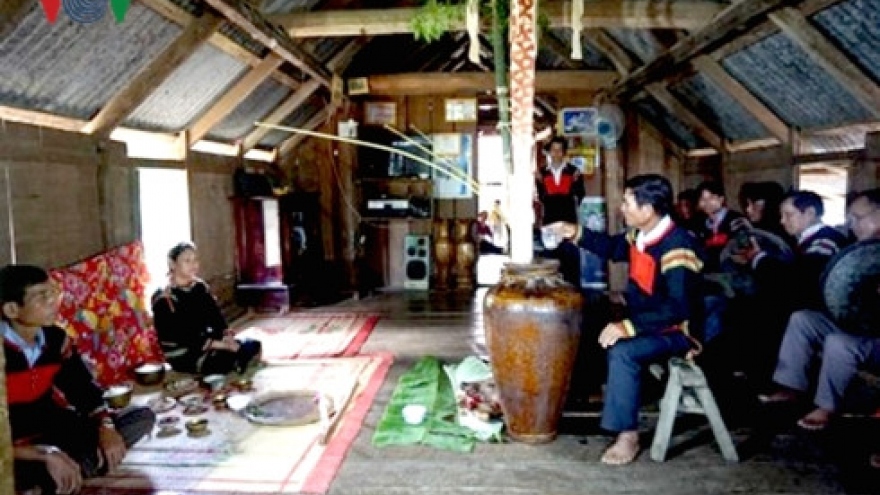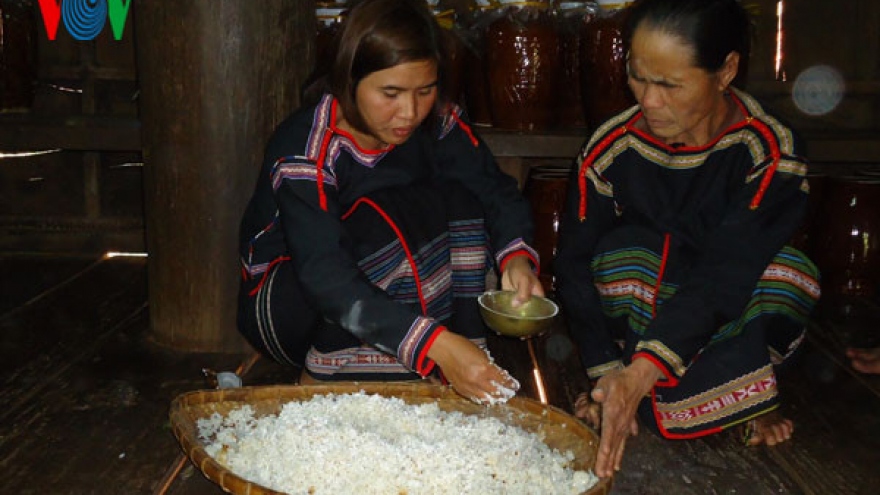Water resource ceremony of the Ede
VOV.VN - The Ede ethnic minority people think that every water resource is managed by a genie. After each harvest and before each new crop, the Ede thank their water genies for blessing them with good weather and lots of luck. This shows their respect for water, the source of life.
 |
| Ede girls fetch water to the communal house, where the water resource worship takes place. (photo: H Xiu/ VOV) |
Patriarch Y Bang Bya said “The water resource ceremony is an age-old custom of the Ede. People are eager to attend the annual event to honor their traditions, talk about their lives, and play games.”
When people settle down in a new place to establish a hamlet, they hold a ceremony to ask their ancestors and the genies of the forests and mountains to help them find a water resource. The Ede are matriarchal, so a woman hosts the water resource ceremony. H’Rol H’Dok oversees Ky hamlet’s wharf. She says that, depending on economic conditions in the hamlet, they organize a water resource ceremony every year or every few years.
“In Ky hamlet, the H’Dok clan has been in charge of worship for the wharf. We organize the ceremony every year or every two years. We pray for good health, prosperity, happiness, and a bumper crop. People of the clan which protects the water resource will be blessed with good health and prosperity.”
 |
| People drink wine in jars after the water resource ceremony. |
The shaman starts the ceremony by inviting the ancestors. Then everybody moves to the water resource to continue the ritual. They thank the Water Genie and pray for his blessing. The women fetch water to the communal house to fill the wine jars. Finally everyone drinks and dances to the sound of the gongs.
H’sui Jue D’Dok said “This is the 3rd water resource ceremony I’ve attended. In Buon Ma Thuot city, my hamlet has preserved the tradition. The festival shows me our roots, tradition, and culture. We honor our ancestors’ merit for building the hamlet. We honor our traditions but don’t reject science.”
Some procedures of the water resource ceremony have been simplified, but the soul of the ritual has been preserved. Besides its religious meaning, the ceremony reminds people to protect the environment - the forests, the land, and, above all, the water.


